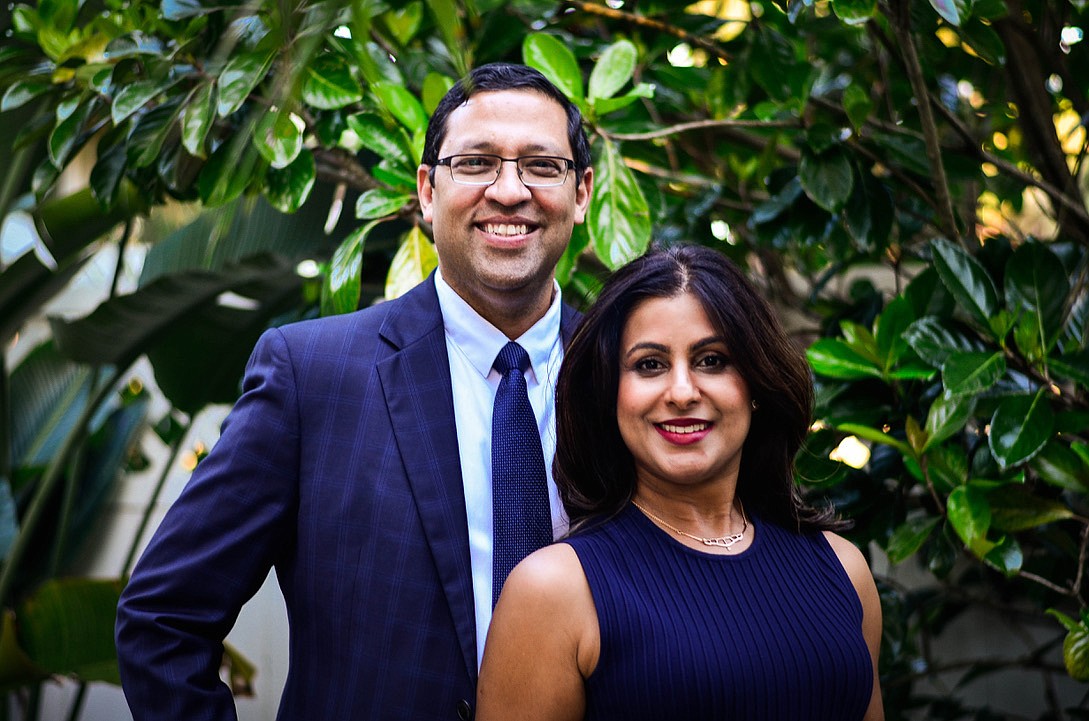
TriageLogic is built on the foundation that a phone call could – and should – save your life.
The company formed in 2006 by spouses Dr. Ravi Raheja and Charu Raheja, who has a doctorate in finance, provides nurses and doctors with critical information to diagnose a patient’s condition over the phone.
They recognized that when calling a doctor’s office, a patient often is transferred to a nonclinical operator.
Some services take basic information, ask about a main symptom or two and pass the information along to a nurse, physician’s assistant or doctor.
It can take time for the message to reach the medical professional.
Members of the TriageLogic medical network receive detailed information about a patient’s ailment through both human and computer resources.
The company began over the kitchen table in Nashville where Ravi Raheja was a pediatrician and Charu taught finance at Vanderbilt University.
As a doctor, Ravi Raheja saw the conventional call center model as inefficient. He was receiving calls about issues his staff could have handled.
“If you had four nurses come in and the call volume increased, you couldn’t get more nurses in quickly because of commuting. If you had four nurses and there were no calls they were just sitting around and getting paid.”
He also thought the level of medical care could be better.
“We basically developed our own proprietary technology to have a lot of features and modules that improve patient care and the physician experience as well.”
Family experience reinforced the need for their service.
Charu Raheja’s father died of a heart attack while on vacation. Ravi’s father ignored symptoms and by delaying treatment he ended up having triple bypass surgery.
Both might have had better outcomes if they had called and talked about their symptoms, Ravi Raheja said.
“We always say, how can we improve patient care by using a combination of technology and good people,” he said.
TriageLogic was doing remote work before it became standard.
Its 80 nurses work throughout the country in their own homes to serve the 10,000 physicians who subscribe to the service. Patients do not know they may be talking to a nurse hundreds of miles away.
TriageLogic nurses are trained to ask a series of questions to delve deeper into a patient’s health problem.
A caller may complain of being dizzy. From that information, the nurse knows to ask about other symptoms that may suggest a heart attack or stroke rather than a case of vertigo.
Another service is patient monitoring.
Patients with diabetes, high blood pressure or congestive heart failure are prescribed measuring apparatuses that are monitored from computers.
If a trend becomes apparent, the doctor’s office is notified and the patient may be called in for a checkup.
“This, compared to the patient going six months without checking his blood pressure and having not done anything about it,” Ravi Raheja said.
TriageLogic has applied for a provisional patent on a new product. It is an AI-based system that prompts operators to ask more questions as needed.
This is similar to the way it works now, but turnover is high in the industry and new operators may not remember the new training. On a busy day, human error may lead to omission of a set of questions.
If a patient prefers, an operator can send a text and the patient can proceed by answering the questions on a computer or tablet that are generated by the algorithm.
There is no TriageLogic app. It continues to be web-based as it has been from the beginning.
“We have about 20 million patients and there is no way we could get 20 million to download a TriageLogic app. There’s no way,” Raheja said.
Initial surveys show promise.
“The nurse or doctor gets the message that is much more relevant and detailed. Initial tests have shown a 30% improvement in the information doctors are receiving than before,” he said.
“What we are really doing is adding more context to every message.”
Charu Raheja, the company’s CEO and chair, spent a year researching the industry and developing the business plan, including the concept of nurses working remotely.
Ravi Raheja was able to explain a doctor’s needs.
Over the years they say they have invested $2 million into developing the company and software.
They have two daughters in college, one is pursuing a doctorate.
Because the Rahejas can live anywhere, they opted to move from Nashville. On a vacation they discovered Jacksonville. The water – St. Johns River, Intracoastal Waterway and Atlantic Ocean – was appealing.
The couple moved here 11 years ago.
“We noticed that Jacksonville is trying to build up and bring in entrepreneurs and tech people,” Ravi Raheja said.
“This is a great place to live and grow both professionally and personally.”